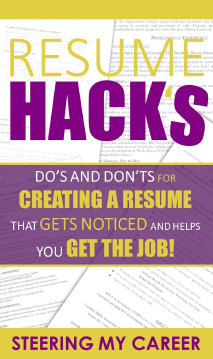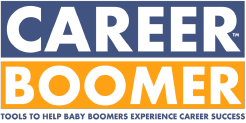



If you are looking for a career change, there is a good chance that you are probably just like many older adults in the workforce today. You may have worked in the same industry or have even held the same position for several years.
If this is the case you have undoubtedly mastered years of great skills and experience that make you an invaluable resource.
This is a great thing but it can also be a liability if you are looking for a career change especially a foray into a new or different field. Many “Career Boomers” face an uphill battle when trying to break into a new industry because the experience that garnered over a lifetime might not directly relate to the new field.
If this sounds a bit like you, you need to learn how to turn your experience into transferable skills that you can use to your advantage and sell yourself to potential employers.
If this is the case you have undoubtedly mastered years of great skills and experience that make you an invaluable resource.
This is a great thing but it can also be a liability if you are looking for a career change especially a foray into a new or different field. Many “Career Boomers” face an uphill battle when trying to break into a new industry because the experience that garnered over a lifetime might not directly relate to the new field.
If this sounds a bit like you, you need to learn how to turn your experience into transferable skills that you can use to your advantage and sell yourself to potential employers.
A transferable skill is basically an experience, talent, or ability that you have learned or acquired over the years that can help you be successful in a new position but not be 100% relevant to that position.
There are a wide range of transferable skills that you may possess including things like relationship building, leadership, sales, communication, customer service, and team building. In fact, whether you know it any skill can be transferable; the key is to show prospective employers how that skill can useful to them.
To determine what transferable skills and talents you may have in you look at your life and evaluate it everything you have accomplished including both professional and personal experiences.
There are a wide range of transferable skills that you may possess including things like relationship building, leadership, sales, communication, customer service, and team building. In fact, whether you know it any skill can be transferable; the key is to show prospective employers how that skill can useful to them.
To determine what transferable skills and talents you may have in you look at your life and evaluate it everything you have accomplished including both professional and personal experiences.
Many “Career Boomers” face an uphill battle when trying to break into a new industry because the experience that garnered over a lifetime might not directly relate to the new field.
The next step in learning how to apply transferable skills from one career is to create a resume and a cover letter that is uniquely specific to each position you are looking to apply for.
When building your resume organize it by skills or accomplishments rather than the typical standard chronological format.
When looking at potential new employment opportunities take the time to carefully read the job descriptions or duties and then think about how you can directly link your transferable skills to them.
Remember an employer wants people who are of value and it’s up to you to show them how much value you must offer.
So, sell yourself, promote your skills, and speak confidently and enthusiastically about your experiences.
When building your resume organize it by skills or accomplishments rather than the typical standard chronological format.
When looking at potential new employment opportunities take the time to carefully read the job descriptions or duties and then think about how you can directly link your transferable skills to them.
Remember an employer wants people who are of value and it’s up to you to show them how much value you must offer.
So, sell yourself, promote your skills, and speak confidently and enthusiastically about your experiences.
USING SOCIAL MEDIA TO BUILD YOUR PROFESSIONAL BRAND
4 POWERFUL SECRETS TO WRITING A WINNING RESUME
PUBLISHED: SEPTEMBER 1, 2017
SKILLS YOU CAN TRANSFER FROM ONE JOB TO THE NEXT

THE INCREDIBLE POWER OF A POSITIVE ATTITUDE
THE QUESTIONS YOU NEED TO ASK IN YOUR NEXT INTERVIEW
BUILDING YOUR CAREER NETWORK ONE STEP AT A TIME
If you are looking to achieve real success in your professional career then one thing is certain and that is you need to learn how to network.





SETTING REALISTIC GOALS FOR YOUR CAREER

5 SIMPLE TIPS TO HELP YOU ADVANCE YOUR CAREER
With low unemployment rates and increased wages firing up our economy and the job market - competition is greater than ever.

NAVIGATING CHALLENGES WITHIN THE WORKPLACE
Navigating challenges in the workplace can be particularly complex for professionals over 50. While experience and wisdom are valuable assets, adapting to new environments...

THE IMPORTANCE OF UPDATING YOUR PERSONAL STYLE
Updating personal style is an essential aspect of professional reinvention for those over 50. As the workplace evolves, so do the norms and expectations surrounding...
